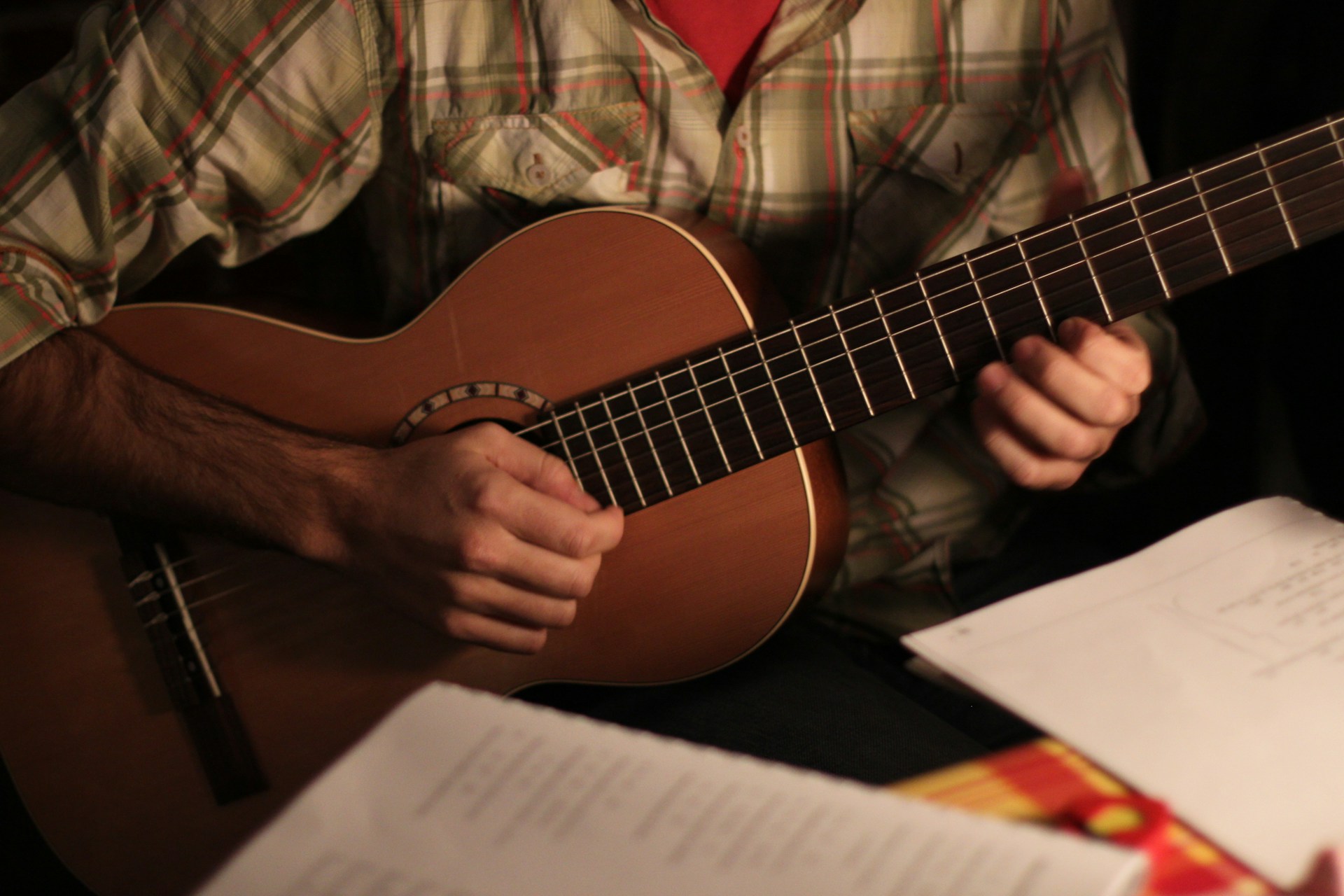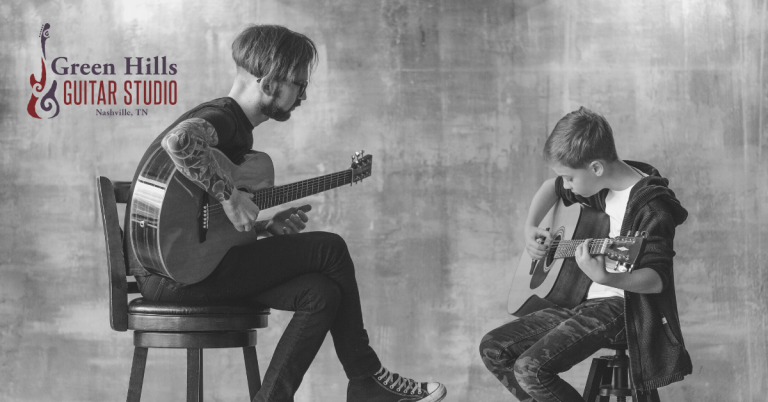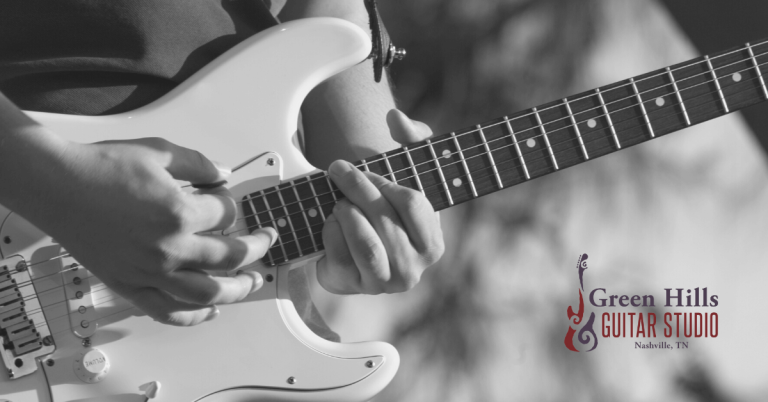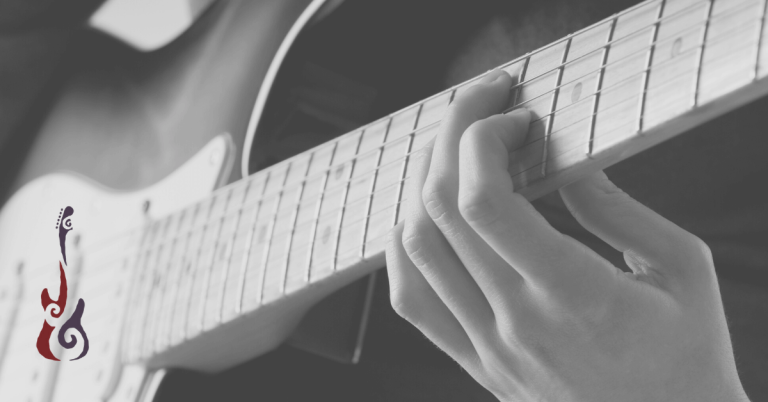Why You Don’t Remember What You Practice (and How to Fix It)
If you’ve ever sat down to practice guitar for an hour, felt like you were making progress, and then picked up your guitar the next day only to realize you forgot almost everything, you’re not alone.
Many students think more practice time automatically means more progress. But here’s the truth:
It’s not about how long you practice. It’s about how well you remember what you practice.
With over 20 years of teaching guitar, Green Hills Guitar Studio has worked with hundreds of students across all ages and skill levels. And a common frustration we hear is this:
“Why can’t I remember what I practiced yesterday?”
In this post, we’ll look at why this happens, and more importantly, how to fix it using simple strategies based on how your brain learns music.
The Real Reason You’re Forgetting What You Practice
Let’s start with a simple idea:
Repetition is not the same as retention.
Many students repeat the same exercise in one session, and then assume it’s “learned.” But memory doesn’t work that way. Without proper recall, your brain doesn’t build long-term pathways.
Here’s what usually happens:
- You play a scale 20 times in a row.
- It feels smooth by the end of your session.
- The next day, it’s gone from memory.
Why? Because you never gave your brain time to store, forget a little, and then retrieve it again. That’s what makes a memory strong.
How Learning Works: 3 Proven Principles
1. Spaced Repetition
Spaced repetition is a powerful memory technique. Instead of cramming 30 minutes of the same thing in one sitting, you break it up over days.
Example:
- Practice your scale for 10 minutes today.
- Come back tomorrow and do it again.
- Wait two days, then do it again.
Spacing your practice helps your brain recall the material more efficiently. That’s how real learning happens.
2. Chunking
Trying to memorize a full solo all at once? That’s like trying to swallow a sandwich whole.
Instead, break it into small, meaningful chunks.
For example:
- Learn 2 bars of a solo at a time.
- Focus on a 4-note lick inside a scale.
- Master the verse chord progression before tackling the chorus.
Your brain stores patterns better than raw data. Think of it like putting puzzle pieces together.
3. Active Recall
This is the missing ingredient for most players.
Instead of always looking at your notes or tabs, try to remember the part from memory, even if it’s not perfect. That act of recall builds strong memory pathways.
Try this:
- Close your eyes and play the riff.
- Set your guitar down and try to visualize the finger pattern.
- Hum the part before playing it.
Even if you get it wrong, that struggle is actually helping you learn faster.
5 Common Mistakes That Lead to Forgetting
- Mindless Repetition: Looping something without thinking doesn’t build memory; it builds boredom.
- Skipping Review: You move on too fast. But reviewing old material cements it.
- Overloading Your Brain: Trying to learn four new songs in one sitting? You’ll forget all of them. Stick to 1–2 focused goals.
- No Practice Journal: Without writing down what you did, you forget what to revisit.
- Never Practicing From Memory: If you always use tabs, you never develop musical memory.
How to Fix It: A Better Way to Practice Guitar
Here’s a sample routine based on how real memory works:
🕐 Day 1
- 10 min: New scale (in chunks)
- 10 min: Easy song using that scale
- 5 min: Play scale from memory
- 5 min: Write a short reflection in your practice log
🕐 Day 2
- 10 min: Try the scale from memory before reviewing
- 10 min: Repeat song—try eyes closed
- 10 min: Create a short lick using the scale
🕐 Day 3
- Wait a day. Come back and test what you recall.
- Then reinforce what you almost forgot.
This cycle builds memory, musical confidence, and real results.
Bonus Tips from an Experienced Guitar Teacher
- Sing it before you play it. If you can hum it, you’re more likely to remember it.
- Use visuals. Draw your fretboard. Mark the root notes.
- Teach it to someone else. Explaining a concept builds deep memory.
- Record yourself. Watch it back tomorrow to spot what you forgot.
- Celebrate small wins. Remembering one phrase today is more powerful than forgetting five.
Final Thoughts: Practice Is Memory Training
Learning guitar isn’t just about your fingers—it’s about your brain. Once you understand how memory works, your practice sessions will feel easier, faster, and more rewarding.
You don’t need more time.
You need smarter practice.
Want Help Making Your Practice Stick?
At Green Hills Guitar Studio, we teach players of all ages how to practice in a way that actually works. If you’re tired of forgetting what you learn, we’ll help you build a personal strategy based on how you learn best.






